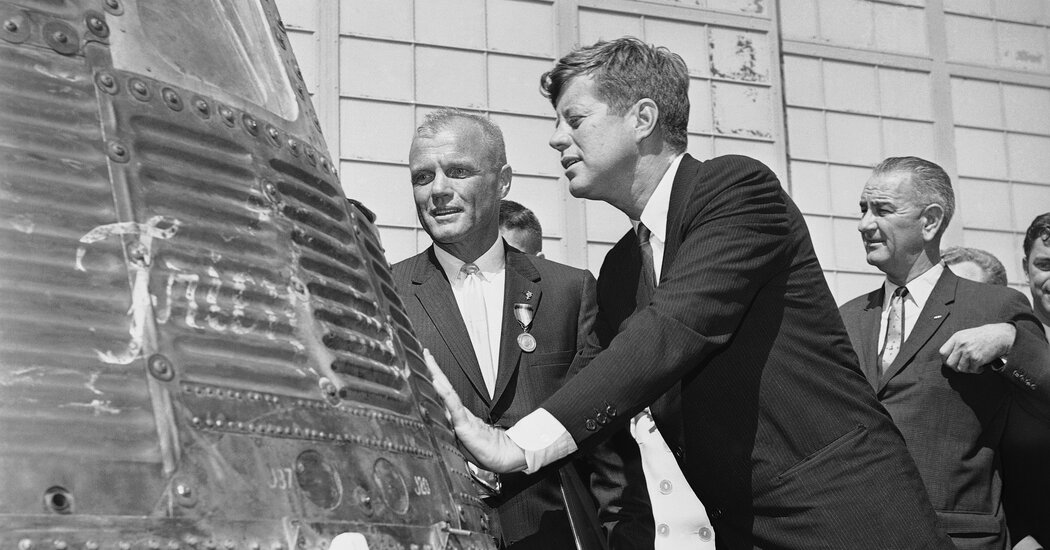
In the end, Shesol argues, Kennedy embraced a dramatically expanded space program not out of genuine conviction of its value so much as a desire to bolster national prestige at a time when many Americans believed the Soviets held the upper hand in the Cold War. In fact, the lagging American effort posed no serious dangers; there was hardly any connection between Moscow’s successes in space and its military capabilities. But Kennedy, Shesol suggests, understood the damaging symbolism of Soviet astronauts, fresh off successful flights, parading triumphantly through Red Square while the American space program “churned in neutral.”
Presidential decision-making lies squarely in Shesol’s analytical wheelhouse. An expert on presidential oratory and a onetime White House speechwriter for Bill Clinton, Shesol is the author of well-regarded histories of Franklin Roosevelt’s 1937 plan to expand the Supreme Court and Lyndon Johnson’s bitter relationship with Bobby Kennedy. Yet “Mercury Rising” is at least as successful when it departs the White House and zeros in on the other, less familiar man at the center of the story, John Glenn.
Shesol dutifully relates the arc of Glenn’s life, from his humble origins in small-town Ohio to his 24-year career in the United States Senate. Most of the book, though, narrates the ups and downs of Glenn’s struggles to become the first American to circle the Earth, an ambition that culminated in the triumphant flight of his Friendship 7 capsule on Feb. 20, 1962. The feat, which came after 10 postponements due to technical glitches or bad weather, stirred huge jubilation and, Shesol stresses, gave the country “its swagger back.”
Glenn’s early experiences made him an ideal candidate for this cathartic role. The son of hard-working parents, he oozed the virtues of middle-class America. He taught Sunday school, married his childhood sweetheart and raised kids. He enlisted in 1942 and, as a Marine fighter pilot, flew dozens of combat missions in the Pacific during World War II and in Korea. In 1957, he gained national fame for piloting a supersonic jet from coast to coast in record time. Faith, patriotism and futuristic possibility hung heavily around this “everyman superman,” in Shesol’s memorable phrase, at just the moment when the newly established National Aeronautics and Space Administration selected him as one of the seven men who’d be trained for the nation’s first manned spaceflights.
Still, securing a leading role in Project Mercury was, Shesol writes, hardly assured. Just as Kennedy understood the power of symbols, Glenn knew that image counted as much as substance in the decisions about which men got the plum assignments. To burnish his chances, he cultivated journalists and fine-tuned the persona of the “aw-shucks, homespun hero” that NASA wanted him to be, Shesol explains.





